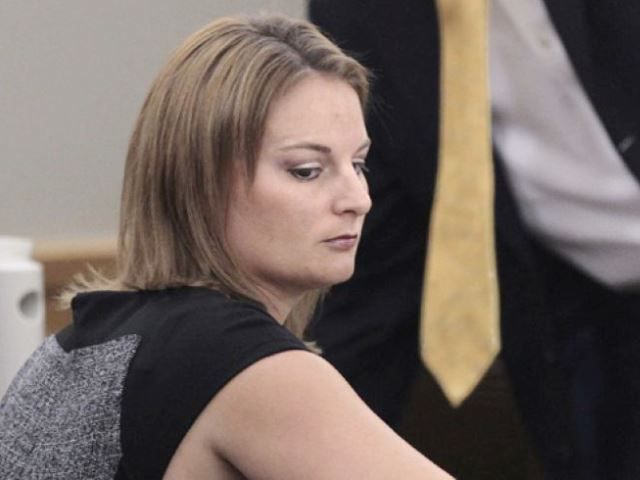Texas lawmakers held a hearing this week on the rampant number of educators who cross the line and engage in improper sexual relationships with their students. The abhorrent conduct violates the trust placed in them to protect pre-K to 12th grade school children.
While they wrestled with the role social media plays in fostering these disturbing relationships, the Texas Senate Education Committee sought solutions.
Lt. Gov. Dan Patrick asked, as one of his interim charges, the committee headed up by state Sen. Larry Taylor (R-Friendswood) to examine these highly improper interactions and prepare policy recommendations prepared for when the state legislature reconvenes in 2017.
Texas Education Agency (TEA) data reflected a 53 percent increase in the number of teacher-student improper relationships investigated by the agency over the past seven years. Previously, Breitbart Texas reported cases jumped 27 percent between 2009 and 2012-13; and the number of purported opened cases increased again from 179 in school year ending 2014 to 188 in 2015. Experts largely blame social media for these occurrences.
TEA Director of Investigations Doug Phillips testified before the committee, noting the difficulties of criminally prosecuting educator sexual predators. He estimated that of approximately 100 adults arrested, few are convicted because of challenges with the way the law is written.
Texas Penal Code 21.12 considers improper relationships a second degree felony that can result in 2-20 years in prison. Phillips pointed out not all improper relationship cases are considered crimes. For example, a teacher-student sexual relationship where the student attends a different school district than where the teacher is employed, when sexual contact cannot be proven, and if there is no sexual contact but where the adult initiates the solicitation of a romantic relationship (Texas Administrative Code 249.3).
TEA investigates these types of cases, which may end with a reprimand, suspension, license surrender or revocation. Some cases are closed for lack of proof. The investigative process that can take years to resolve, Breitbart Texas reported. Theoretically, a teacher who avoids conviction can keep their teacher certifications, the TEA verified.
Phillips added that it is not against the law to date or kiss a student, but it is inappropriate. He called those actions “activities you should not engage in as an educator.” He raised the need for additional ethics training, something that only a minimal amount is required and available in educator prep programs. However, Phillips zeroed in on the expanded use of electronic media that is unsupervised and allows for direct contact between educators and students, dubbing it the “nexus” of most of these sexual and other improper relationships.
Breitbart Texas extensively covers teacher-student improper relationships, often sourcing Terry Abbott, former U.S. Department of Education chief-of-staff. He blames social media and secret electronic text messaging for the explosion of classroom sexual predators that has “created an open gateway for inappropriate behavior,” including developing “improper relationships with students out of sight of parents and principals.” Today, Abbott heads Houston-based research firm Drive West Communications, which tracks reports of inappropriate teacher-student sexual relationship across the country. Abbott calls the wave of sexual deviance “epidemic” nationwide.
He noted nearly half of the cases in Texas last year “involved secret social media texting connections between teachers and students.” Nationwide, in 2014, about 35 percent of the sexual misconduct cases between educators and their students involved social media. Abbott says one big fix to this problem in Texas is to ban all forms of teacher-student private communication.
The TEA includes electronic communication (such as cell phone, text messaging, email, instant messaging, blogging, or other social network communication) on their hit list, saying the technology provides a “private channel” to contact students during and after school hours.
Abbott said: “Facebook, Instagram and Snapchat didn’t exist 15 years ago, and the number of teenagers with their own cellphones has ballooned. Classroom sexual predators have been exploiting these new, unsupervised modes of communication to develop improper relationships with students out of sight of parents and principals,” the Lubbock Avalanche Journal reported.
David Thompson, a University of Texas at San Antonio education law professor, commented at the hearing that greater oversight of text messages between teachers and students needs to be enforced. He added that school districts should post employee handbooks online so parents have a better understanding of conduct expectations, the Texas Tribune noted. Thompson said school officers he interviewed for his research do not think improper teacher-student relationships get taken as seriously as they ought to be.
TEA spokeswoman Debbie Ratcliffe told Breitbart Texas, “We think this is a topic that is worthy of Senate consideration. There are some clarifications that could be made that would make it easier to investigate these cases. For example, we hope lawmakers will clarify what information must be provided to the Texas Education Agency and the State Board for Educator Certification during the course of an educator investigation.”
She suggested lawmakers consider changes to the Texas Education Code (TEC) 21.006 Superintendent Reporting Requirements to provide additional clarification about who and what must be reported. Ratcliffe added that is also “worth reviewing which crimes or actions should result in an automatic revocation of an educator’s license.”
In September, Ratcliffe told Breitbart Texas, “It’s very discouraging to see the number of cases on the rise.”
Follow Merrill Hope on Twitter @OutOfTheBoxMom.

COMMENTS
Please let us know if you're having issues with commenting.